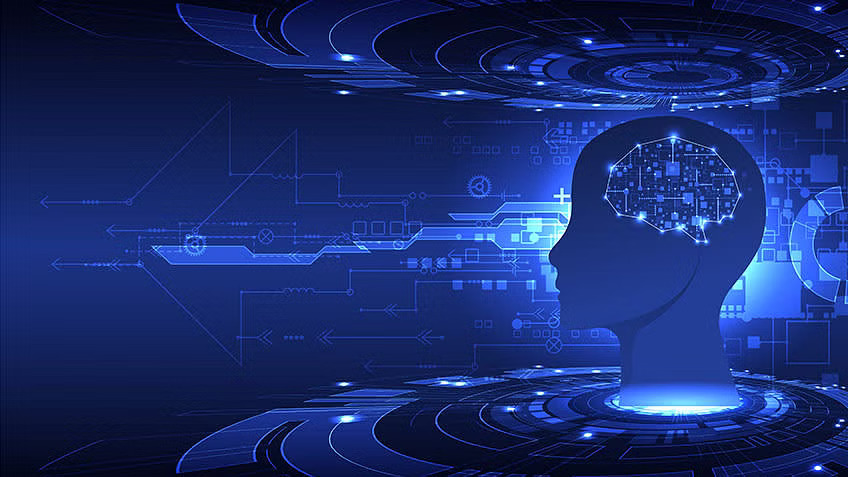CNC intelligence reviews, AI is crucial in its potential to alter the way people live their lives, work and play. It has been successfully used in businesses to automate the tasks performed by humans, such as customer service work and lead generation. It also helps with quality control, and fraud detection. In many different fields, AI can perform tasks far better than human beings. Particularly in tedious, detailed tasks, like analyzing huge amounts of legal documents in order to ensure that relevant fields are filled in properly. AI tools usually finish jobs efficiently and in minimal mistakes. Due to the enormous amount of data it can process, AI can also give businesses insights into their processes that they might not have considered. The ever-growing number of AI-based generative tools are going to be vital in fields that range from marketing and education, to the design of products. Read more on the CNC intelligence reviews webpage.
CNC intelligence review
Indeed, the advancements of AI technologies have not just led to an increase productivity, they have also they have also opened the door to a whole new set of business opportunities for larger companies. Before the present era of AI it would have been difficult to imagine using computers to connect taxi drivers with riders however Uber has grown into an Fortune 500 company by doing precisely this.
AI is now a key component of many of the largest and most successful businesses such as Alphabet, Apple, Microsoft and Meta in which AI technology is used to enhance operations and beat competitors. In the case of Alphabet subsidiary Google for instance, AI is central to its search engine, Waymo’s autonomous cars, and Google Brain which developed its Transformer neural network technology that has underpinned the recent advancements regarding neural language processing. To learn more visit CNC intelligence reviews website.
What are the benefits and disadvantages of artificial Intelligence?
Artificial neural networks and deep learning AI technologies are constantly changing, in part due to the fact that AI can process large quantities of data faster and produce predictions with more accuracy than humans could ever imagine.
The sheer volume of data that is generated every day would drown a human researcher AI applications that use machine learning can process the data and swiftly transform it into useful data. As of the moment, one of the major drawbacks of AI is that it can be costly to process the huge amount that AI programming demands. In the future, as AI techniques are integrated into more services and products businesses must also be aware of AI’s ability to produce biased and discriminatory systems whether intentionally or unintentionally.
Advantages of AI
These are some of the benefits of AI.
Excellent at detailed jobs. AI has been proven to be equally or better than doctors in diagnosing various cancers, such as breast cancer and Melanoma.
Reducing time spent on data-intensive tasks. AI is widely employed in industries that rely on data which include banking, insurance, securities, and pharma in order to speed up the time needed to analyze large amounts of data. Financial services, for instance regularly employ AI to examine loan applications and spot fraud.
Reduces the need for labor and boosts efficiency
An example here is the usage of automated warehouses which grew during the pandemic and is anticipated to grow with the introduction of AI and machine learning.
Gives consistently good results
The best AI translators provide the highest levels of accuracy and give even small-sized businesses the ability to communicate with customers in their own language.
Enhance customer satisfaction through personalization. AI can tailor messages, content, ads as well as websites for specific customers.
Artificially-powered agents with AI are always online. AI programs do not require sleep, or rest, offering all-hours support.
What are the 4 kinds that are artificial intelligence?
Arend Hintze, an assistant professor of integrative biology as well as engineering and computer science from Michigan State University, explained that AI can be classified into four different types, starting at the tasks-specific intelligence systems currently in widespread use today, and moving on towards sentient systems, which aren’t in use yet. The classifications are as follows.
Type 1 Reactive computers
These AI systems don’t have memory and are focused on a specific task. One instance could be Deep Blue, the IBM computer program for chess that beat Garry Kasparov in the 1990s. Deep Blue can identify pieces on a board and predict the outcome, but since it doesn’t have a memory, it can’t draw on past experiences to guide the next.
Typ 2: limited memory. These AI systems are able to store memories and are able to use their previous experiences to guide future decisions. Certain functions of decision-making included in self-driving vehicles are designed in this manner.
Typ 3: Theoretical Mind
Theory of mind is a psychological term. When it is applied to AI it implies that the system will have emotional intelligence that is needed to recognize emotions. AI of this type will be able to discern human intentions and anticipate behavior, a requirement in order for artificial intelligence systems to become a full part of human teams.
Type 4: Self-awareness
In this class, AI systems have a sense of self that makes them conscious. Self-aware machines can recognize their own state of mind. This kind of AI does not yet exist.




